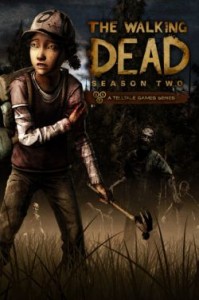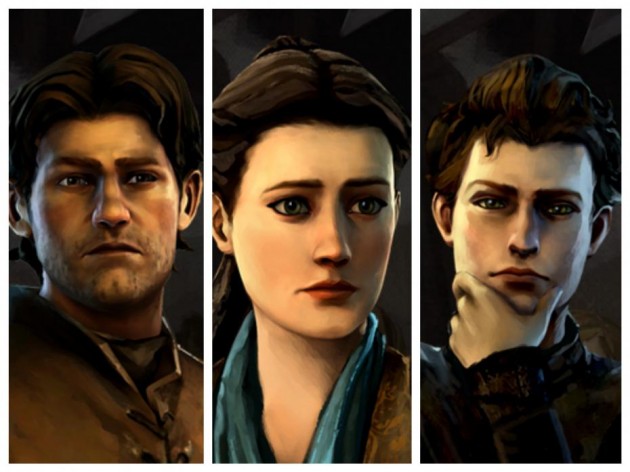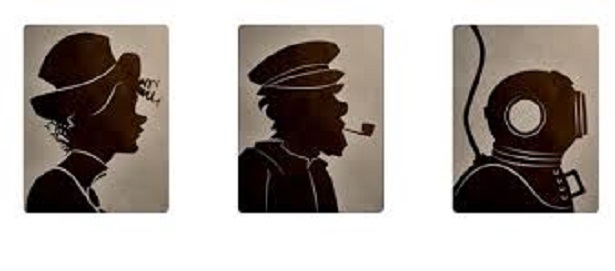Last week, Telltale Games finally confirmed what many of us have suspected–or hoped–since we wrapped Season One of The Walking Dead: Season Two will follow Clementine in a post-Lee apocalypse. There’s been no confirmation yet on the timeline for the new episodes, so we may pick up with Clem anywhere from right after the events of Season One to a slightly older, wiser Clem who has been surviving the apocalypse for some time.
Season One takes places over the course of several months (just under four months, according to some), and Clem ages from eight to nine during that period, so if Season Two picks up after the events of the DLC 400 Days, at most our Clementine will be almost ten. Telltale has confirmed that player actions taken during 400 days will have an impact on Season Two, but considering that some of those events run concurrent to those in Season One, that may only impact the world solo Clem encounters during her adventures. But why all the fuss about dates and timelines? Because our young protagonist is not only running solo in the apocalypse… she’s also stepping into history as a pre-teen game protagonist in a semi-realistic world of hyperviolence, something we simply don’t often see in video games.
Young characters are becoming more and more common these days, with the rise of game-parenting in particular, a trend Season One perpetuated by tasking players with taking care of Clementine while in Lee’s shoes. But outside of young heroes in games like the Final Fantasy series and The Legend of Zelda (and childhood moments in games like Beyond: Two Souls), the young are often secondary, companion characters who may sometimes step into lead roles (as with The Last of Us), only to give them up again when older characters return or are rescued. And I think for the purposes of comparison to The Walking Dead, we must discount fantasy games, as they fall into a long tradition of young chosen heroes at the forefront of narrative.
 But even when we do look at these examples, Clementine is unique in that she is still very much a child. In the few images released thus far, it’s clear that her body is still undeveloped. If she has aged, it isn’t much, so we will be taking a child–albeit a wise child trained to survive by a loving surrogate father–into the zombie-strewn wilds, and while I initially wondered if Season Two would focus more on evasion and stealth, considering Clementine’s limited physical abilities (no way around it: she’s small), Telltale is putting her out there with a hammer, reminding us that Clem is armed and prepared to kill when she must.
But even when we do look at these examples, Clementine is unique in that she is still very much a child. In the few images released thus far, it’s clear that her body is still undeveloped. If she has aged, it isn’t much, so we will be taking a child–albeit a wise child trained to survive by a loving surrogate father–into the zombie-strewn wilds, and while I initially wondered if Season Two would focus more on evasion and stealth, considering Clementine’s limited physical abilities (no way around it: she’s small), Telltale is putting her out there with a hammer, reminding us that Clem is armed and prepared to kill when she must.
What does it mean for games when we graduate from the role of protector and take on the role of child? And not a teenager, someone on the cusp of adulthood, but a true child? How will that change our reactions to violence, and perhaps more importantly, encounters with other humans? After Season One, the fates of Omid and Christa were not revealed, and the trickles of information on Season Two indicate we’ll find out for certain what happened to Kenny, but what happens when Clementine encounters strangers? Will they be kind to a child, or see her as someone easy to overpower, exploit, rob, or worse? She will probably not be inclined to trust easily, not only because she was taught well by Lee, but due to the undeniable fact of her size and limited physical prowess.
Playing as Clementine will force us to reassess our place in the world. When we play games set in broken, lawless worlds, we are often forced to confront certain harsh realities: sometimes, it’s easier to overpower women and take their things. Sometimes women are raped. Violence against women is rampant in all forms of media: in film, in books and graphic novels, in games. We know this; we talk about it all the time. Putting Clementine, a nine-year-old girl, into the shoes of the solo protagonist in a game centered in a zombie apocalypse may well magnify all those issues. Not only is she a female, but she is a very small female with limited muscle development.
In the bluntest of laymen’s terms: shit just got real.
But perhaps that’s exactly what we need to demonstrate what it means to put women and girls in those roles. Traditionally we seem to find it easier to discuss issues of violence without bringing in as much cultural baggage when children are involved. Once a woman hits puberty, even if she’s still young, discussions are too often derailed by victim-blaming: she was asking for it, she should have been more careful, she shouldn’t have been out drinking/wearing that/running around alone/taking risks, etc. But Clementine asked for none of this; she was thrust into this role when her parents left for that trip to Savannah. All she has done since is survive. She cannot be blamed.
I’m interested in Season Two because I loved Season One, but I’m also interested in seeing how we talk about a young female protagonist in a terrible world. I’m interested in seeing what happens to her, how she’s treated when she meets others, and how we engage with those issues both in and out of the game. I think this could represent an amazing step forward for gaming. We’re getting both a strong female character and one who is devastatingly vulnerable, all in one package, in a game that will be played across gender lines, and we’re getting it soon: episode one should be released this month.
Let’s see what happens.




